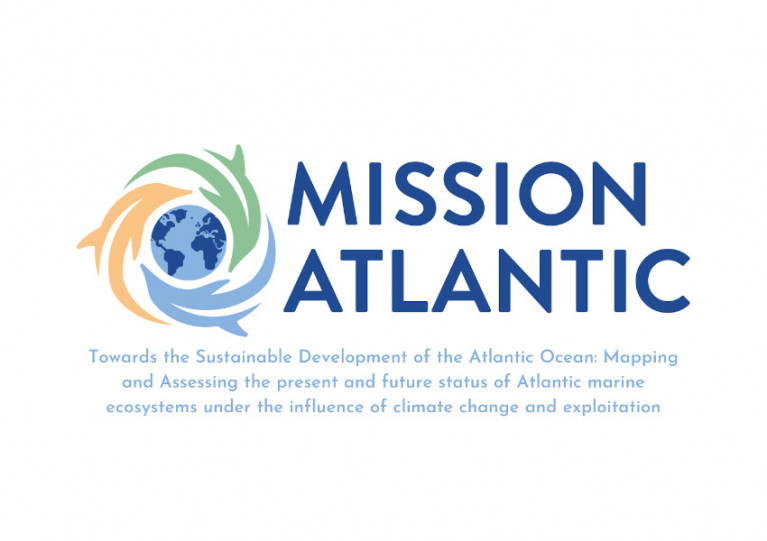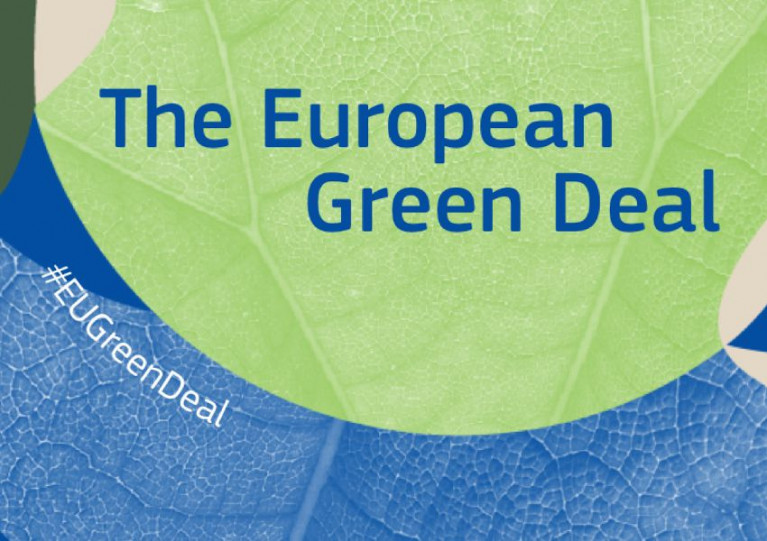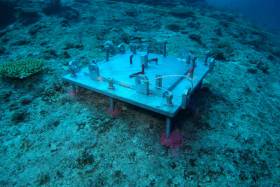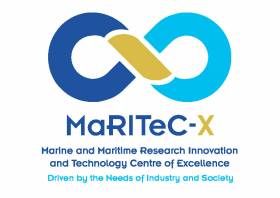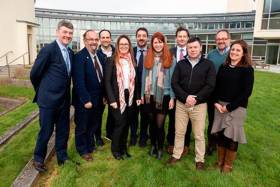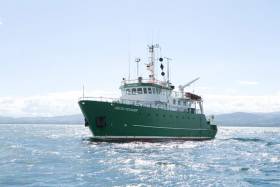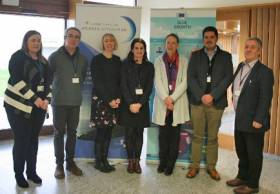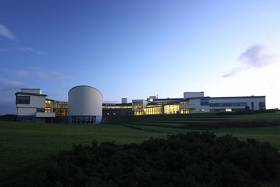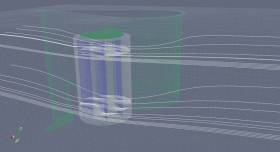Displaying items by tag: Horizon 2020
New Aquaculture Observatory Web Portal Launched
Extreme marine events such as marine heat waves are increasingly threatening to degrade ocean ecosystems and seafood security with potential devastating consequences to aquatic related businesses.
In order to prepare for such events, the Marine Institute, with colleagues in the Horizon 2020 Innovation Action EuroSea project, has developed a new marine observatory specifically designed to address the needs of the aquaculture sector.
The observatory web platform provides an early warning system that can be accessed at eurosea.marine.ie with a help-desk service for end users to provide suggestions or comments on their user experience.
Frequent end-user interaction was essential from the beginning of the project to ensure the service was in agreement with the needs of the industry.
This observatory integrates data from multiple ocean observing platforms (in-situ databuoys; satellites; numerical models) and provides easy access to information about the oceanographic processes affecting the fish farm facilities and its neighbouring waters.
During the EuroSea project, two oceanographic moorings with sensors developed by Xylem were deployed at the pilot sites at Deenish Island in Co Kerry and El Campello on the Costa Blanca in south-eastern Spain.
For the Irish site, satellite observations of ocean colour and sea surface temperature are provided together with information on the occurrence of marine heat waves.
The web portal also provides access to sea surface temperature historical data, starting from 1982, for any site within the Irish Exclusive Economic Zone (EEZ) selected by the user in an interactive application.
Modelled forecasts (eg water temperature, significant wave heights) are linked to the warning system for the EuroSea demonstration sites with a facility for end users to receive notifications on their phone. The thresholds that trigger these warnings were agreed with the end-users when the system was developed.
Finally, best practice guidelines were developed for other partners around the world who plan to develop similar marine observatories. As such, the software is open-access and a scientific paper was recently published in Frontiers in Marine Science.
Marine Institute Scientists Join ‘Mission Atlantic’ To Map & Assess Sustainable Ocean’s Development
Marine scientists from Ireland will join an international group of ocean experts in a project to map and assess the Atlantic Ocean’s current and future risks from climate change, natural hazards and human activities.
Mission Atlantic brings the Marine Institute together with scientists from Europe, Brazil, South Africa, Canada and the USA to develop the first Integrated Ecosystem Assessments (IEAs) at the scale of the Atlantic basin.
Using high-resolution ocean models; data collected with marine robots and acoustic sensors; artificial neural networks; risk assessment methods; and advanced statistical analysis, the international partnership will assess the pressures imposed on the Atlantic’s marine ecosystems — especially those related to plankton and fish distribution — and identify the parts most at risk.
The Marine Institute says this “unique” project — funded by a €11.5 million grant from the European Union’s Horizon 2020 programme — will engage scientists, managers of marine resources and other stakeholders in balancing the need for environmental protection with sustainable development.
‘Mission Atlantic will contribute to a better and more sustainable future for life on Earth’
“In an era of rapid transformations affecting our societies and our lives, we are asked to provide the scientific knowledge necessary to face future challenges and to guarantee a sustainable future for the next generations,” says project co-ordinator Patrizio Mariani.
“By studying the complex Atlantic Ocean ecosystems, Mission Atlantic will contribute to a better and more sustainable future for life on Earth.”
The Marine Institute is leading the IEA approach for each of the seven case study areas throughout the Atlantic. In the Celtic Sea, this will be underpinned by regional data from INFOMAR, Ireland’s ongoing seabed mapping programme.
Marine Institite chief executive Dr Paul Connolly said: “The comprehensive mapping of the depth, character and benthic habitat of our seabed is critical to assess change, manage resources and risks, and to predict understand and realise the potential of our marine resource.”
Mission Atlantic will also focus on improving education, professional development opportunities and maritime policy in countries that border the Atlantic Ocean, north and south.
More information on the project will be available soon at www.missionatlantic.eu
The Enterprise Europe Network is hosting a virtual brokerage event next month on the call for proposals under the European Green Deal.
The free one-day virtual event on Tuesday 13 October — in partnership with Enterprise Ireland, Invest NI and National Contact Points (NCPs) in Northern Ireland — will present insights and expectations from the European Commission and NCPs in all areas of the European Green Deal.
It will also provide a unique opportunity to pitch ideas and expertise in front of leading research organisations and cutting-edge innovators from across industry.
Networking is a feature, with one-to-one meetings to build Horizon 2020 Green Deal consortia in the afternoon and evening, and continuing on Wednesday 14 October.
Participants will also have the opportunity to meet with NCP experts and the Enterprise Europe Network.
The event is open to SMEs, larger companies and research organisations based on the Island of Ireland and across Europe.
For more information or to register for the event, click HERE.
An ‘Irish ocean observing system’ is among six research projects to receive €25 million in funding through the Science Foundation Ireland (SFI) Research Infrastructure Programme.
Innovation Minister Heather Humphreys yesterday (21 October) announced the investment as part of Future Jobs Ireland that will be distributed among the six infrastructure projects “in areas of strategic priority across a variety of disciplines”.
Mr Michael Gillooly of the Marine Institute is lead on the EirOOS Irish Ocean Observing System, a component of the European Ocean Observing System (EOOS) that aims to further scientific and technical research capacity in key areas such as sea level science, ocean circulation and carbon sequestration, allowing us to better understand the connection between Ireland and the Atlantic.
Announcing the awards, Minister Humphreys said: “The quality of research being undertaken in Ireland today is testament to our world-class research community. This talent combined with the support provided through programmes like this one maintains our reputation as a great place to do business and work.
“The successful projects are at the cutting edge of innovation and are helping us to achieve our goal of preparing now for tomorrow's world.”
The SFI Research Infrastructure Programme aims to ensure Irish researchers have the capacity to apply for international funding opportunities, including Horizon 2020 funding calls.
Additionally, the programme eases inter-institutional sharing of national research infrastructure, especially for institutes of technology, as well as effective collaborations with industry.
Welcoming the investment in EirOOS, new Marine Institute chief executive Dr Paul Connolly said: “Sustainably managing our oceans and understanding the impacts of ocean and climate change, requires increased observations on and within the ocean.
“These observations underpin research and advice to support policy makers in sustainably managing our oceans and also in developing adaptation and mitigation plans for climate change impacts.
“The investment in the EirOOS infrastructures will enable enhanced ocean observation and underpin forecasting and modelling in the marine area.”
Ireland Collaborating With Cyprus On Centre Of Excellence For Marine & Maritime Research
A new joint initiative between Ireland and Cyprus for a Centre of Excellence for Marine and Maritime Research has been awarded a €15 million grant from the European Commission.
The funding under Horizon 2020: Widespread’s Coordination and Support Action call goes to the project titled CMMI MaRITeC-X, whose main objective is to establish a marine science and maritime research centre in Cyprus, the Cyprus Marine and Maritime Institute (CMMI), within the next seven years.
In this initiative, the Marine Institute and SmartBay Ireland is partnering with Cypriot government bodies (Municipality of Larnaka), private companies and organisations (GeoImaging Ltd, Maritime Institute of Eastern Mediterranean, SignalGenerix Ltd and Limassol Chamber of Commerce) as well as with the University of Southampton, UK.
The new institute to be formed in Cyprus will focus on research, technology development and innovation in several sectors critical for the Cypriot economy, such as maritime transport, marine ecosystems, offshore energy and other societal needs in the Eastern Mediterranean.
Currently in grant agreement preparation, the project is expected to kick off by end of the second quarter this year.
The Marine Institute says project complements the ambitions set out for Ireland in Harnessing Our Ocean Wealth relating to the development of our shipping and maritime industry by enabling Ireland to build expertise in these areas.
More broadly, the Harnessing Our Ocean Wealth strategy sets out clear targets in terms of turnover from the marine economy by 2020, and increasing the industry’s contribution to GDP to 2.4% a year by 2030.
The MaRITeC-X project will contribute to these objectives and is also consistent with Ireland’s Marine Research & Innovation Strategy. This strategy supports the implementation of Innovation 2020, Ireland’s national research and innovation strategy, which identifies the marine sector as one of eight areas of focus for social progress and the economy.
The Marine Institute’s contribution to the project (with a combined award of €2m) will be managed jointly by the Irish Maritime Development Office (IMDO) and SmartBay Ireland.
It’s expected that the project will allow Ireland to build national research and development capacity and to collaborate with institutions and organisations across Europe as it contributes to expertise in building marine and maritime clusters.
Marine Institute chief executive Peter Heffernan said: “We are delighted at news of the MaRITeC-X award. The award acknowledges the excellence and leadership that both the Marine Institute and SmartBay demonstrate in the European maritime landscape.
“We look forward to cooperating and collaborating with our Cypriot partners to the benefit of both innovation-led maritime economies.”
Garrett Murray, national director for Horizon 2020 at Enterprise Ireland, added: “Ireland continues to perform well under the programme and there is significant competitive funding available for Irish researchers and companies under Horizon 2020 with 40% of the budget remaining.
“EI and partner agencies are committed to supporting participation in H2020 to realise the Irish Government’s target of winning €1.2bn from the EU’s €70bn Horizon 2020 R&I budget.”
John Breslin, general manager of SmartBay Ireland said his company would be “reaching out to Irish businesses and research organisations who wish to collaborate with CMMI and its stakeholders, to help broker the development of joint projects and funding opportunities”.
#MarineScience - The EurofleetPlus Kick-off meeting held at the Marine Institute in Galway this past week (Tuesday 5 to Thursday 7 March) announced details of the project that will facilitate access to the largest advanced marine science research vessel fleet across Europe, Greenland, USA and Canada, Bermuda and New Zealand.
Building on the achievements of the two preceding Eurofleets projects, the Marine Institute is a co-ordinator of EurofleetsPlus, a consortium comprising 42 marine institutes, universities, foundations and SMEs from 24 countries across Europe, North America and Oceania, with funding of €9.9 million.
Welcoming Ireland’s leadership role in this major EU Horizon 2020-funded project, Marine Minister Michael Creed said: “This recognises the high standards of scientific and operational excellence which continue to be achieved by the Marine Institute and is particularly relevant in the strategically important arena of research vessels operations, where the Marine Institute’s RV Celtic Explorer operates over 300 days of the year.
“Ireland’s participation in international research partnerships such as EurofleetsPlus adds value to Ireland’s ocean research capacity and I congratulate the Marine Institute on its outstanding success rate of 40% in Horizon 2020 funding bids totalling €6.6 million since 2014.”
Involving trans-national activities, the project will prioritise research on sustainable, clean and healthy oceans, linking with existing ocean observation infrastructures, as well as support innovative ideas working closely with industry.
Aodhán Fitzgerald, RV operations manager at the Marine Institute and EurofleetsPlus project co-ordinator, said that the project will enable access to an unprecedented number of vessels providing a significant increase in ship time at sea.
“With a fleet of 27 state-of-the-art research vessels from European and other international partners, this is extremely exciting for marine researchers as they now have opportunities to access research vessels in the North Atlantic, Mediterranean, Black Sea, North Sea, Baltic Sea, Pacific Southern Ocean and Ross Sea, through the competitive calls process.”
In addition to ship time, marine researchers and scientists will also have the opportunity to work with the best marine equipment and marine infrastructure exploring the ocean in ways that have not been possible in the past.
This will include access to seven new remotely operated vehicles (ROVs) to capture video and samples from the deepest parts of the ocean. The researchers will have access to five autonomous underwater vehicles for collecting data relating to the ocean environment.
In addition, a unique mobile portable telepresence unit will also enable remote access by researchers and diverse end users including the public, which is a first for Europe.
Establishing a strategic roadmap and sustainability plan, EurofleetsPlus will extend and enhance the capabilities of the European research vessel infrastructure, bringing new perspectives, new ideas, and new research and innovation tracks that will be beneficial to all.
At the kick-off meeting, Fitzgerald added: “I am looking forward to working with established and new partners over the next four years. This trans-national project will provide us all with a unique opportunity to develop our networking activities, ensure robust call processes with booking ship-time, as well as increase our stakeholder engagement at a national and international level.”
EurofleetsPlus is funded under Horizon 2020 Integrating Activity for Advanced Communities with respect to Environmental and Earth Sciences - Research Vessels. The project has received funding from the European Union's Horizon 2020 research and innovation programme under grant agreement No 824077.
Applications Close Tomorrow For Eurofleets Plus Temporary Team Leader Role With Marine Institute
There’s still time to apply for the Marine Institute’s vacancy for a temporary team leader for its Eurofleets Plus and Marine Robots projects.
Applications close at noon tomorrow, Monday 28 January for the position, in which the successful candidate will act as project manager for the Eurofleets Plus project.
Eurofleets Plus is a four-year advanced community research infrastructure project which has been awarded funding via Horizon 2020, and aims to unify oceanic research fleets across Europe for shared purposes and common goals.
Among other requirements, the Marine Institute is looking for applicants with degree in a scientific or technical subject am with a proven background in working in marine research projects, ideally in a co-ordination capacity.
The Marine Institute website has more on the role and how to apply HERE.
#Horizon2020 - This week’s information day on Horizon 2020 as a key investment driver for the marine sector highlighted the importance of ‘blue growth’ as an important opportunity for marine research in Ireland.
Since 2014, 27 Irish marine participating organisations have successfully partnered in 48 marine-related H2020 projects bringing a minimum of €24.9 million in EU grant aid to Ireland.
This competitive record represents 7% of the total available drawdown for Ireland for a range of research, development and innovation projects, well in excess of the juste retour principle.
The Blue Growth Call aims to sustainably harness the potential of resources from seas, oceans and inland waters for different uses and across the range of marine and maritime industries, while protecting biodiversity and enhancing climate resilience.
It supports sustainable growth in the marine and maritime sectors through a responsible management of marine resources for healthy, productive, safe, secure and resilient seas and oceans, which are essential for thriving ecosystems, climate regulation, global food security, human health, livelihoods and economies.
Speaking at the event hosted by the Marine Institute in Oranmore yesterday (Tuesday 12 December), Fiona Grant of the institute stated that “a strategic co-ordinated approach for marine and maritime research across all parts of Horizon 2020 is required as this will support the implementation of relevant EU policies to help deliver key blue growth objectives across Europe.”
A total of €239 million in dedicated blue growth funding is available between 2018 and 2020 to sustainably harvest the potential of aquatic and marine resources, while protecting biodiversity and enhancing climate resilience.
Funding topics relevant to the marine and maritime sectors can be found under the following non-exclusive and non-exhaustive list of societal challenges across a broad range of blue growth areas in work programmes:
- Food Security, Sustainable Agriculture and Forestry, Marine and Maritime and Inland Water Research and the Bioeconomy and related areas.
- Secure, Clean and Efficient Energy.
- Smart, Green and Integrated Transport.
- Climate Action, Environment, Resource Efficiency and Raw Materials.
- Secure Societies - Protecting Freedom and Security of Europe and its Citizens.
Niall McDonough, director of policy, innovation and research support services at the Marine Institute, highlighted “the value of ongoing cooperation on marine and maritime research.
“Ireland has, in recent years, benefited from national and international partnerships, particularly where there have been coordinated approaches in supporting the EU Atlantic Action Plan. Sharing information, costs, results and best practices, as well as generating ideas for further areas of co-operation in maritime activities, is key to developing a sustainable blue economy in Ireland and the EU.”
The support team for the Atlantic Action Plan provided information relating to Horizon 2020 national contact points, developing a winning proposal, the application process as well as innovation and access to risk finance.
Speakers included Joanne Laffey, support team for the Atlantic Action Plan, Marine Institute; Fiona Grant, H2020 NCP for SC2 (Marine), Marine Institute; Phillip Cheasty, NCP for SC3, Enterprise Ireland; Alice Wemaere, NCP for SC5, Environmental Protection Agency; David Murphy, Aqua TT; Seán Burke, NCP for SME Instrument, Enterprise Ireland; and Julie Clarke, Gavin & Doherty Geosolutions.
Book Your Place For Info Session On Horizon 2020 As Key Investment Driver For Marine Sector
#Horizon2020 - The Irish Support Team for the Atlantic Action Plan, in association with the recently launched Horizon 2020 Work Programme for 2018-2020, will host an information session at the Marine Institute in Oranmore, Co Galway on Tuesday 12 December.
The inclusion of ‘blue growth’ as one of the 12 focus areas for Horizon 2020 represents an important opportunity to build on the marine and maritime sectors of the EU and contribute to the delivery of the Atlantic Action Plan.
The morning session of the event will focus on funding opportunities for the marine and maritime sectors under the new H2020 Work Programme, with NCPs present to highlight the main priorities and funding opportunities. David Murphy (AquaTT) will then lead a practical session on developing a winning H2020 proposal.
After lunch, the focus will switch to marine SMEs. Sean Burke from Enterprise Ireland will address the H2020 SME Instrument, and a member of the Strategic Banking Corporation of Ireland (SBCI) will discuss access to low-cost, long-term finance for marine SMEs.
The day will conclude with breakout sessions with all NCPs present. To pre-book an NCP meeting please e-mail [email protected] before Monday 4 December.
Stakeholders can register online for morning and/or afternoon sessions. Spaces are limited, so please register early to guarantee your place.
Funding For New Tidal Energy Project At Limerick Docks
#SeaPower - A prototype tidal energy turbine project in the Shannon Estuary has received almost €100,000 in funding for further development, as the Limerick Post reports.
GKinetic has been testing a scale prototype of its new hydrokinetic turbine for the last year, at a purpose-built facility in Limerick Docks set up in tandem with the Shannon Foynes Port Company.
The new funding of €99,562 from the Sustainable Energy Authority of Ireland’s (SEAI) Prototype Development Fund will support testing on an improved prototype from August for a six-week period, as the company ramps up plans to scale up the design to a 250kW tidal device.
GKinetic’s technology is already being commercialised by fellow Co Limerick company DesignPro, who secured funding earlier this year under the Horizon 2020 project to test its own river energy devices at scale.
The Limerick Post has much more on the story HERE.


























